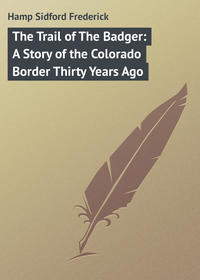The Trail of The Badger: A Story of the Colorado Border Thirty Years Ago

Полная версия
Добавить В библиотекуАвторизуйтесь, чтобы добавить
Добавить отзывДобавить цитату
The Trail of The Badger: A Story of the Colorado Border Thirty Years Ago
Авторизация